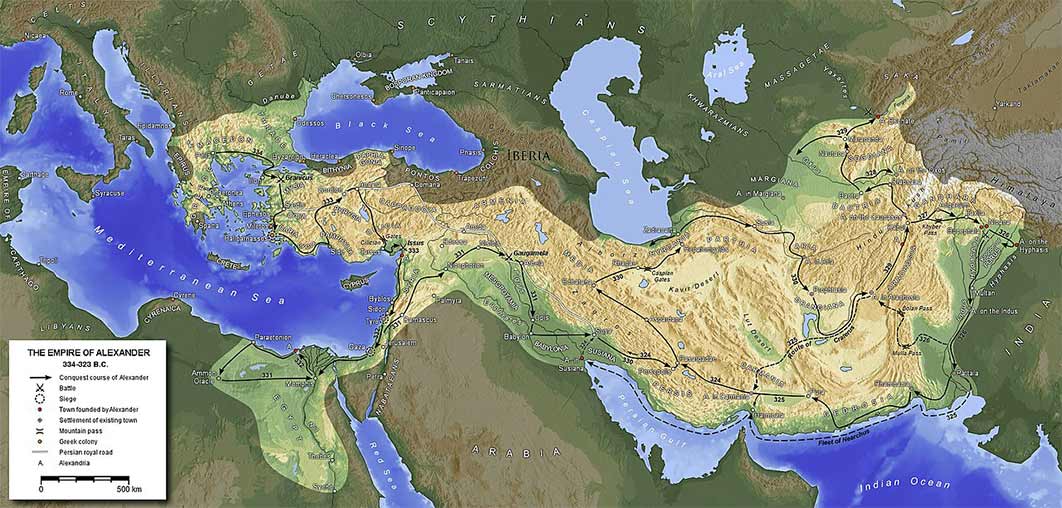
The Last Will and Testament of Alexander the Great: Its Appearance, Disappearance And Legacy
“…the uncomfortable fact remains that the Alexander Romance provides us, on occasion, with apparently genuine materials found nowhere else, while our better-authenticated sources, per contra, are all too often riddled with bias, propaganda, rhetorical special pleading or patent falsification and suppression of evidence.’ Peter Green, Alexander of Macedon
When Alexander III of Macedon took the throne at age 20 in 336 BC, no one could have foreseen the magnitude of change coming to the Graeco-Persian World. Alexander’s reign spanned almost 13 years, 11 of which were spent marching through the Asian provinces of the former Persian Empire. His Macedonian-led army, supported by grudging Greek mercenaries from the garrisoned Hellenic world with auxiliaries from subjugated Balkan states and tribes, toppled 220 years of Achaemenid rule, only to face the prospect of a fragile new world order imploding at his death in Babylon in mid-June 323 BC. Alexander was aged 32.

Map of Alexander's empire and his route (CC BY-SA 3.0)
Today, some 2,344 years on, a few barely intact accounts survive to tell a less-than-coherent tale of his final days; these conflicting death reports raise more questions than they answer, while Babylon was itself a city shrouded in myth. The testimony available is principally derived from the narratives of five Roman-period biographers - Diodorus, Curtius, Justin, Plutarch and Arrian - who penned their accounts 300-450 years after Alexander’s reign, and they were less than forensic in questioning their sources.
What remains of their incomplete and gap-ridden manuscripts covering Alexander’s final days concludes with contradictory and suspicious set of death-scene rehashes. But if one drills down below the confusion and rhetoric one finds three distinct and competing witnesses from Babylon in June 323 BC, as the testimony they contain likely originated with men there. One version portrayed Alexander dying silent and intestate, he was Homeric and vocal in the next, whilst a third detailed Alexander’s last will and testament, though it is now attached to the end of a book of fables. Which account can one trust?

Farewell to Alexander the Great, by Karl von Piloty (1886) (Public Domain)
The Portent-Filled Death
It has long been recognized that the surviving texts are riddled with disinformation, an accusation which stems back to the men who campaigned with Alexander and wrote their eyewitness accounts, the ‘primary sources’. This evidences a ‘civil war’ waged on papyrus regarding claims of his death. Alexander himself was not immune from this posthumous battle to hide the truth. Even his sanity was called into question: sources suggest he became excessively paranoid, assuaging his fears with drinking and sacrifices, and with ‘foolish misgivings’: ‘he converted every unusual and strange occurrence… into a prodigy and portent. Alexander filled the palace at Babylon with soothsayers of every description, and ‘now distrustful of the favor of Heaven and suspicious of his friends’, he became a ‘slave to his fears’.
One has been passed the description of a man losing his sanity, and this too looks contrived to suggest Alexander’s death was inevitable and the will of the gods. Once again these diversional claims stems from the men who were present. Corroborating sources highlighted a string of banquets and drinking bouts that heralded in Alexander’s end. But this also marks the point at which the accounts diverge on what happened next.




